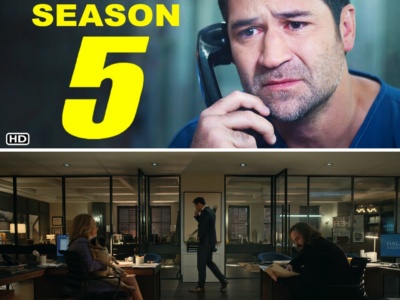
If you’ve only seen Benedict Cumberbatch in the Doctor Strange films and other MCU outings, you’re missing the depth of his ability to go dark. Eric, the new limited series on Netflix, is his latest attempt to show his range, and by all accounts, he does a good job.
Benedict Cumberbatch Is Vincent And Eric

Eric just hit Netflix, but Rotten Tomatoes already has it scored with 71 percent positive reviews from critics. The six-hour-long episodes feature Cumberbatch at the center of a harrowing story, and his supporting actors include Gabby Hoffman, Dan Fogler, McKinley Belcher III, and Adepero Oduye, among others. It is a British psychological thriller set in New York City, of all places.
With Eric, Netflix appears to be finding the fine line between the same old “white kid goes missing” narrative and the reality lived by every parent of color who has a child go missing. In this series, we have another story where a young white boy suddenly goes missing, Edgar, son to Cumberbatch’s Vincent. But as the tale progresses, the show insists that we see the underbelly of a gritty city rich with missing Black and brown children.
A Problematic Puppeteer

In Eric, Netflix gives us Vincent, a puppeteer on a kids television show akin to Sesame Street. He’s not a great guy from the start. He drinks excessively, picks fights with his wife, Cassie (Gabby Hoffman), and is not well-liked by anyone who knows him, including his boss, Lennie (Dan Fogler). Edgar, meanwhile, spends his time drawing and hoping to live up to his father’s high expectations for him.
He draws a large monster he calls “Eric” and shows it to his dad, who dismisses him with barely a glance.
Vincent Is Worse For Wear

The suspense in Eric on Netflix happens almost immediately as the next morning Edgar walks to school alone and disappears. In the first few episodes, we watch as Vincent descends into drunken, drugged madness, and begins imagining Eric walking alongside him and urging him to find Edgar as Cassie struggles with her own grief. Meanwhile, the detective on the case, Michael Ledroit (McKinley Belcher III), begins investigating the connection between the missing boy and a New York City Nightclub.
Other Missing Children Point To Bigger Issues

By the third episode of Eric, however, Netflix flips the script a bit and introduces us to a Black mother, Cecile (Adepero Oduye), whose son went missing the previous year to little fanfare. The two boys’ disappearances are similar, so Cecile asks Ledroit to continue looking for her son as well. From this point on, the viewer experiences two narratives —- the commonly told one of a missing white child and the trials and tribulations of the many people of color so often invisible to white viewers.
Asks Difficult Questions

It is, to say the least, a great ambition that Eric and Netflix make together. While they don’t pull it off entirely, this kind of ambition must be heralded as evidence of changing times. The revolutionary questions asked in this show are those many of us in the white, privileged world must contend with.
Why don’t missing Black children warrant media and police attention? Why must a Black detective hide his homosexuality? Who’s watching out for the underserved and underrepresented among us?
It would be too much to ask Eric and Netflix to answer all of those questions so early in these days of change, and we are still very early, but it is worth checking this show out to see how these issues are handled.
